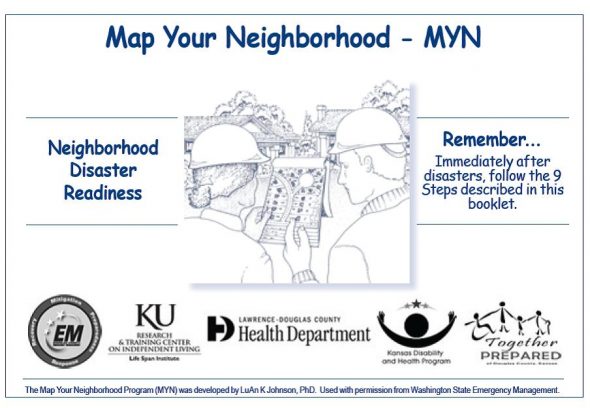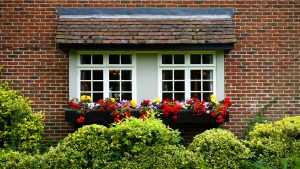
“Where are you from?”
 Here in the Northwest, experts and our government leaders have asked us to prepare for a major earthquake. Cities in my area were looking for citizens willing to get a resource called “Map Your Neighborhood” (MYN) into the hands of those who’d be willing to act. As I considered my work with Q Place, I saw this as an incredible opportunity, so I jumped at the chance. I’ve since been endorsed by Washington State Emergency Management to work with and through churches to help get this wonderful resource into many local neighborhoods! It may be “only” the earthquake now, but who knows what might befall the region at another time? (One interesting side note: it’s not just the Pacific Northwest accessing this resource; currently 44 states are using it for readiness preparedness specific to their region or area! Note the graphic above!)
Here in the Northwest, experts and our government leaders have asked us to prepare for a major earthquake. Cities in my area were looking for citizens willing to get a resource called “Map Your Neighborhood” (MYN) into the hands of those who’d be willing to act. As I considered my work with Q Place, I saw this as an incredible opportunity, so I jumped at the chance. I’ve since been endorsed by Washington State Emergency Management to work with and through churches to help get this wonderful resource into many local neighborhoods! It may be “only” the earthquake now, but who knows what might befall the region at another time? (One interesting side note: it’s not just the Pacific Northwest accessing this resource; currently 44 states are using it for readiness preparedness specific to their region or area! Note the graphic above!)
How fantastic that across the nation, we’ve been given a tool to help us connect with our neighbors! My husband and I have been taking this task quite seriously and through MYN, we’ve gotten to meet our neighbors—new and old alike.
As my husband and I began our neighborhood mapping exercise, we found ourselves often meeting people who weren’t originally from our area and asking a simple question—“Where are you from?” That question has opened up great initial connections with neighbors.
Scott West, a financial adviser consultant, researched the impact of asking different kinds of questions at the outset of interacting with people. He discovered that after initial introductions, if people follow what he calls the Natural Order of Curiosity, then their conversations will open up rather than becoming stifled. The category of questions that begins this pathway of curiosity most often begins with questions that are basically asking “Where are you from?” (The 9 Arts of Spiritual Conversations, p. 103)
By simply asking “Where are you from?” my husband and I have learned more about people’s history than we could have possibly imagined. But what’s been interesting about asking this question in the context of emergency preparedness is that, very often, the past that gets revealed includes hardships that have been experienced.
Coming to know that even one of your neighbors has come through something traumatic really changes things—our understanding of resiliency is redefined and our compassion increases as we begin to share in the pain of our neighbor. We can’t help but feel a new level of respect when we learn of the difficult events they have experienced in the past.
After each conversation with our neighbors, my husband and I “fill in our map” —writing down names and making notes to remember what we’ve learned. These notes will not only help us and our neighborhood if there is an emergency, it has become our prayer card that we bring to the Lord as well.
You may not be preparing for the next major earthquake or have a specific reason to “map your neighborhood,” but even on a personal level, my experience doing so has been very powerful. We all know that our Lord told us to love our God and to love our neighbor as ourselves. I’m grateful that He has allowed me—with one simple question and my MYN—to help me do that.
Susan Burbank
Q Place Lead City Catalyst, Seattle
